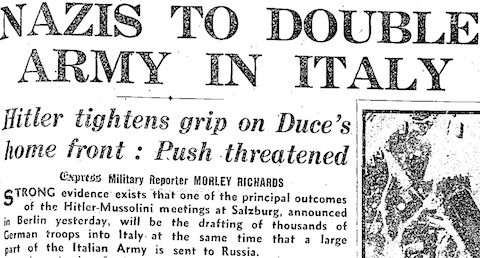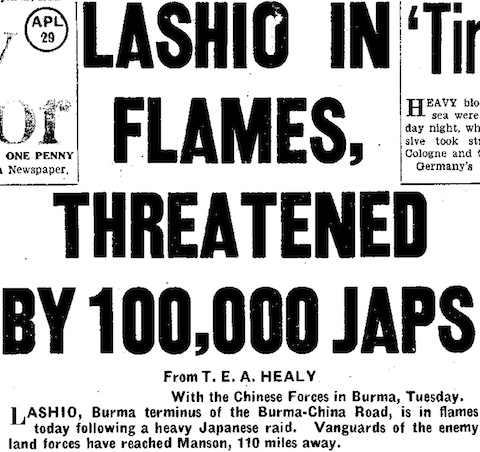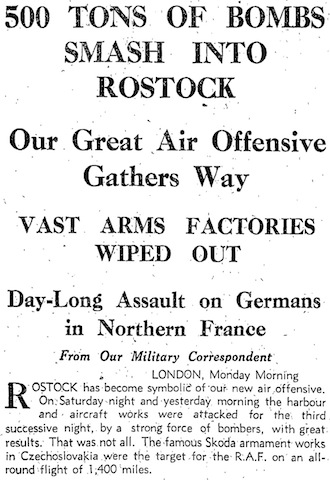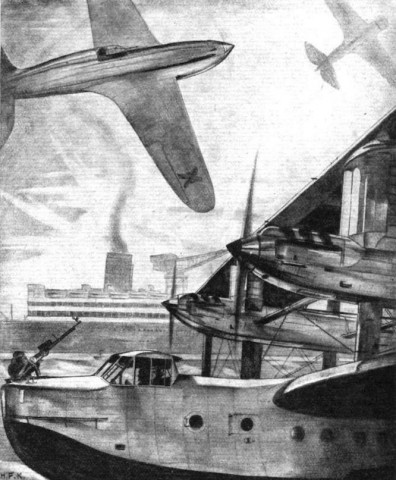Saturday, 2 May 1942
All the newspapers today carry news of the meeting between Hitler and Mussolini in Salzburg; only the Daily Express leads with it. Its angle is that there is ‘STRONG evidence’ that the two dictators agreed that Italy would sent ‘a large part’ of its army to Russia, while Germany would send ‘thousands’ of its soldiers […]






